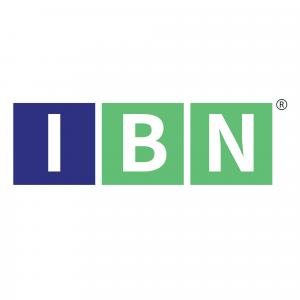Nanny Tax Update: New 2025 Wage Limits for Household Employers
Discover how to maximize nanny tax credits, avoid misclassification risks, and streamline payroll management with expert guidance.
The IRS aims to enhance compliance among household employers while ensuring transparency in tax obligations. "If you're hiring a nanny, these tax updates are something you can't afford to ignore, the rules have changed, and it's on employers to make sure they’re following them. Staying compliant isn’t just about avoiding penalties, it’s about making sure your employees are taken care of properly." said Ajay Mehta CEO at IBN Technologies.
The revised regulations are designed to simplify tax reporting and prevent misclassification of household employees. With an increase in the Social Security and Medicare tax threshold, many families will need to reassess their tax obligations when hiring domestic employees.
Review and Correct Your Tax Plan with Experts & Save More – Act Now!
IRS Adjusts Wage Thresholds for 2025 Nanny Tax Compliance
Starting January 1, 2025, the Social Security and Medicare (FICA) tax threshold increases to $2,800, up from $2,700 in 2024. Household employers paying a domestic worker $2,800 or more annually must withhold and remit FICA taxes.
The Federal Unemployment Tax Act (FUTA) threshold remains at $1,000 per calendar quarter. Employers meeting this threshold must fulfill federal unemployment tax obligations along with any applicable state unemployment taxes.
Mandatory Tax Contributions for Household Employers
Employers meeting the new wage thresholds must comply with the following requirements:
Social Security and Medicare (FICA) Taxes – 15.3% of wages
1) Employers contribute 7.65% (6.2% Social Security, 1.45% Medicare).
2) Employees contribute 7.65%, deducted from wages.
3) Wages exceeding $200,000 are subject to an additional 0.9% Medicare tax, payable by the employee.
Federal Unemployment Tax (FUTA) – 6% on the first $7,000 of wages
1) Employers may qualify for a 5.4% tax credit by paying state unemployment taxes, reducing the effective FUTA rate to 0.6%.
State Unemployment Tax (SUTA) – Rates vary by state
1) Employers must confirm requirements with their respective state tax agencies.
Comply with the updated 2025 nanny tax regulations, household employers must:
1) Obtain an Employer Identification Number (EIN) – Required for reporting employment taxes.
2) Complete Employee Documentation – Employers must collect Form W-4 (Employee’s Withholding Certificate) and Form I-9 (Employment Eligibility Verification).
3) Withhold and Remit Payroll Taxes – Employers must deduct the nanny’s share of FICA taxes and remit the full contribution to the IRS.
4) File Required Forms – Issue Form W-2 to employees by January 31, 2026, and file Schedule H (Household Employment Taxes) with tax returns.
5) Review State-Specific Obligations – Employers should verify additional state-level nanny tax requirements.
Household employers may qualify for certain tax credits and deductions, including:
1) Dependent Care Tax Credit: Eligible families can claim up to 35% of childcare expenses for dependents under age 13.
2) Flexible Spending Accounts (FSA): Employers with FSAs can contribute up to $5,000 pre-tax toward childcare expenses.
Save time and reduce risks by properly classifying household employees! https://www.ibntech.com/free-consultation/?pr=EIN
Consequences of Ignoring Nanny Tax Regulations
Failing to comply with nanny tax laws can have serious financial and legal repercussions for household employers. The IRS imposes strict penalties, including back taxes, accrued interest, and fines for those who fail to report and pay the required employment taxes. Employers who do not adhere to tax obligations may also lose eligibility for key tax credits and deductions, increasing their overall financial burden.
Moreover, misclassification of a household employee as an independent contractor can result in legal consequences, including accusations of tax evasion. The IRS has ramped up enforcement efforts to ensure compliance, making it essential for employers to maintain detailed payroll records and fulfill their tax obligations in a timely manner. By staying informed and proactive, household employers can avoid costly penalties and ensure adherence to federal and state regulations.
"If you're a household employer, keeping accurate records and filing your taxes correctly isn't just a suggestion—it's a necessity, failing to do so can lead to costly penalties and legal issues, which are entirely avoidable with the right planning” says Ajay Mehta.
Expert Insights and Resources for Employers
Tax professionals emphasize the importance of staying informed about evolving regulations. Experts suggest that household employers consult with specialized tax advisors to navigate the complexities of nanny tax compliance. Ensuring accurate reporting and proper documentation can prevent costly penalties and legal repercussions. Additionally, leveraging professional tax filing services can streamline the process and reduce administrative burdens.
The IRS's newly announced 2025 nanny tax regulations require household employers to revise their payroll and reporting procedures to comply with the increased wage threshold. To mitigate potential penalties and maintain compliance, employers are urged to seek expert tax guidance and stay updated with IRS recommendations.
Tax industry professionals emphasize the necessity of expert assistance to ensure accurate and efficient nanny tax filing. Renowned tax consultancy firm IBN Technologies, expertise in forms preparation, offers specialized services in nanny tax filing support, payroll management, and regulatory compliance for household employers. Their specialized expertise helps employers navigate evolving tax regulations and ensure seamless compliance.
Furthermore, IBN Technologies provides end-to-end tax preparation support in documentation and forms submissions, ensuring that household employers meet their nanny tax obligations with precision and efficiency. With decades of experience, the company remains a trusted partner for payroll management and employment tax compliance.
Resources:
US Tax Filing Deadline 2025, Forms, Software & More
https://www.ibntech.com/article/us-tax-filing-2025-guide/
Internal Revenue Service (IRS)
https://www.irs.gov/publications/p926
Explore More Services:
Outsourced Payroll Processing Services
https://www.ibntech.com/payroll-processing/?pr=EIN
Outsource Bookkeeping USA
https://www.ibntech.com/bookkeeping-services-usa/?pr=EIN
Outsourcing Services for CPA & Accounting Firms
https://www.ibntech.com/cpa-outsourcing/?pr=EIN
About IBN Technologies
IBN Technologies LLC, an outsourcing specialist with 25 years of experience, serves clients across the United States, United Kingdom, Middle East, and India. Renowned for its expertise in RPA, Intelligent process automation includes AP Automation services like P2P, Q2C, and Record-to-Report. IBN Technologies provides solutions compliant with ISO 9001:2015, 27001:2022, CMMI-5, and GDPR standards. The company has established itself as a leading provider of IT, KPO, and BPO outsourcing services in finance and accounting, including CPAs, hedge funds, alternative investments, banking, travel, human resources, and retail industries. It offers customized solutions that drive efficiency and growth.
Pradip
IBN Technologies LLC
+1 844-644-8440
sales@ibntech.com
Visit us on social media:
Facebook
X
LinkedIn
Instagram
YouTube
Legal Disclaimer:
EIN Presswire provides this news content "as is" without warranty of any kind. We do not accept any responsibility or liability for the accuracy, content, images, videos, licenses, completeness, legality, or reliability of the information contained in this article. If you have any complaints or copyright issues related to this article, kindly contact the author above.



